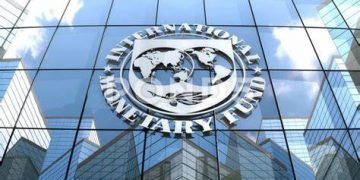By Enyichukwu Enemanna
The International Monetary Fund (IMF) says Nigeria will record a growth in its economy from 3.0 per cent in 2022 to 3.2 per cent in 2023, owing to efforts being put in place to address insecurity in the oil sector.
The fund however predicted that South Africa’s economy will fall from 2.6 per cent in 2022 to 1.2 per cent in 2023.
In its World Economic Outlook Update (January 2023) report, IMF noted that growth across sub-Saharan Africa will moderate at 3.8 per cent in 2023 amid prolonged fallout from the COVID-19 pandemic.
“In sub-Saharan Africa, growth is projected to remain moderate at 3.8 per cent in 2023, amid prolonged fallout from the COVID-19 pandemic, although with a modest upward revision since October, before picking up to 4.1 percent in 2024.
“The small upward revision for 2023 (0.1 percentage point) reflects Nigeria’s rising growth in 2023 due to measures to address insecurity issues in the oil sector. In South Africa, by contrast, after a COVID-19 reopening rebound in 2022, projected growth more than halves in 2023, to 1.2 percent, reflecting weaker external demand, power shortages, and structural constraints”, the Washington-based lender stated.
As the global community reels from the effects of Russia’s invasion of Ukraine, entering its first anniversary, IMF notes that growth in the global economy will slow down in 2023 before bouncing back in 2024.
Growth is forecasted to slow from 3.4 per cent in 2022 to 2.9 per cent in 2023, then rebound to 3.1 per cent in 2024.
It added further, “Economic growth proved surprisingly resilient in the third quarter of last year, with strong labour markets, robust household consumption and business investment, and better-than-expected adaptation to the energy crisis in Europe.
“Inflation, too, showed improvement, with overall measures now decreasing in most countries—even if core inflation, which excludes more volatile energy and food prices, has yet to peak in many countries.
“Elsewhere, China’s sudden re-opening paves the way for a rapid rebound in activity. And global financial conditions have improved as inflation pressures started to abate. This, and a weakening of the US dollar from its November high, provided some modest relief to emerging and developing countries.”
World Bank in its own projection, stated that the Nigerian economy would grow at 2.9 per cent in 2023.
The United Nations recently projected that a robust commodities trade and dynamic consumer goods and services markets would push Nigeria’s economic growth to three percent in 2023.

































